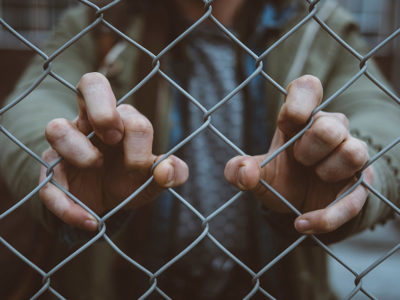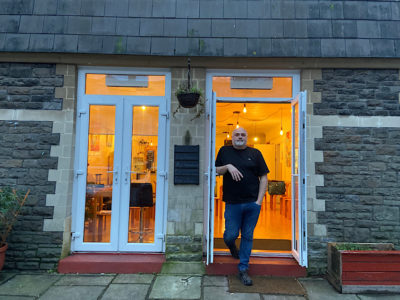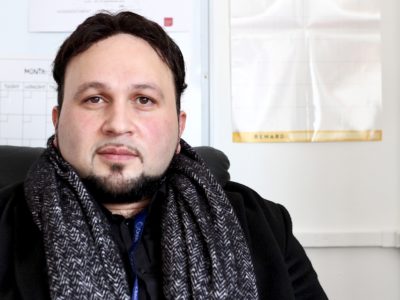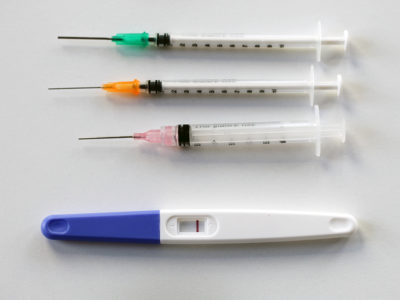Charities accepting hygiene donations in Cardiff
Many people tend to donate either food or clothes to charities, especially over the festive period. However, more and more charities are seeking and accepting donations of hygiene products. Here is a guide to some you can help out in and around Cardiff.
Oasis Cardiff
A charity that helps refugees and asylum seekers across the capital. Oasis runs several sessions teaching English, art and sport, as well as supper club nights that teach people about various cultures and cuisines and help build new relationships. Alongside clothes, shoes and bags, the charity have specifically asked for donations of shower gel, shampoo, conditioner and sanitary products.
Cardiff Women’s Aid
Usually the Cardiff branch of the women’s charity ask for items such as “essential toiletry items” like toothpaste, toothbrushes, sanitary products, soap and shampoo. They also request towels and flannels for the women seeking their help. Welsh Women’s Aid suggests contacting your local branch to find out their current needs before donating.
Llamau
A homeless charity in the centre of Cardiff that mostly supports young adults between 16-24, Llamau asks for Gifts in Kind such as clothing, bedding, toys, home appliances and furniture. They also ask for toiletries of any kind, as long as they are in their original packaging.
Huggard
Due to lack of space, Huggard cannot accept donations of food, clothing or bedding. However, as part of their Winter is Coming appeal, they are seeking men’s and women’s deodorants, socks and towels.
With more seeking help to afford even the most basic of toiletries, what is being done to guarantee the human right to cleanliness?

More than half of people seeking help from food banks also cannot afford basic hygiene products, according to a recent report
We have all heard of period poverty. However, the issue is part of the far wider, yet less-talked about, “hidden crisis” of hygiene poverty overwhelming people across Wales.
Even a quick Google search of the term comes up with more results on periods than anything else.
However, whether someone is living on the streets and does not have the facilities to wash themselves, or has to sacrifice shower gel and shampoo in order to afford rent and food, hygiene poverty is on the rise.
To tackle this, initiatives across South Wales are working hard to help the increasing number people suffering through hygiene poverty with essential donations and new schemes to aid those in desperate need.
In one particular high-profile instance, Beauty Banks was set up in early 2018 by Welsh journalist, Sali Hughes. After experiencing hidden homelessness in London, Sali decided to set up the initiative to help guarantee more people the basic human right of being clean and healthy.
It could be argued that Beauty Banks was a catalyst, with the topic receiving more attention in the media over the last year. This is particularly important as hygiene poverty is usually overshadowed in media coverage by other prevalent issues related to it.
For example, period poverty has been reported on massively in the last few years, and in March this year a pledge of £1m was made by the Welsh Government to tackle the issue of dignity and the correct facilities in schools.
However, no plans have been made in relation to supporting other forms of hygiene poverty.
This is surprising, especially as The Trussell Trust recently revealed that during the first half of 2018, there was a 13% increase in the number of people using food banks in Wales. They estimate that more than half of those using these services also cannot afford basic hygiene products.
One charity aided by the work of outlets such as Beauty Banks is Cardiff-based homeless charity, Llamau.
Many of the 9,000 people it helps each year are classed as either officially homeless or at a risk of homelessness, and it has seen a rise in the number of people appealing to them for aid with hygiene-specific issues.
“It’s beyond homelessness,” says Sam Austin, deputy chief executive of the charity.
“If people are on a low income, it can be really difficult to manage rent, service charges, paying utility bills, buying food, travelling to and from work, and then to buy products to keep yourself clean. That’s when hygiene poverty is a really big issue,” she explains.
The negative effects of bad hygiene
Being unable to afford everything deemed essential to living can have a negative effect.
A report published last year by In Kind Direct surveyed ten UK charities, three-quarters of which highlighted the fact that the donation of hygiene products had revitalised the self-esteem of the people receiving them.
“I never used to have shampoo and conditioner and it made me feel dirty. I felt like a tramp and I didn’t want to leave the house”
This is something that Sam tells us she has witnessed first-hand while working for the charity, and that supplying people with the means to shower and wash their hair has boosted confidence and mental health significantly.
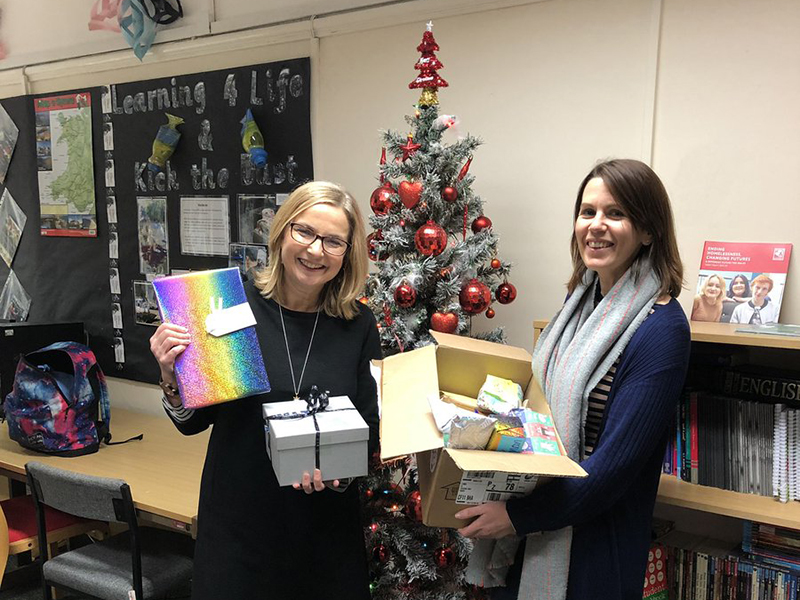
Llamau are one of several charities in South Wales who receive hygiene product donations from the local community, as well as high-profile organisations such as Beauty Banks (Photo credit: Llamau)
This is true of Courtney Alexander, a 17-year-old from Cardiff who sought help from Llamau six months ago after being in foster care.
“I never used to have shampoo and conditioner and it made me feel dirty. I felt like a tramp and I didn’t want to leave the house,” Courtney explains. “The products they’ve given me for my hair and body are really helpful.”
The charity is now helping Courtney with her education in an effort to find a career in the hair and beauty business, and with Llamau’s help, she feels far more confident about her future.
Desperate measures for basic needs
Hygiene poverty does not discriminate, affecting everyone from the homeless, to children and working adults.
The same In Kind Direct report found that 43% of parents with young children sacrificed hygiene products as they could not afford them after all other essentials such as food and clothing.
This is evidenced by the increase of income poverty in the last decade. Since 2014, 24% of people in Wales were living in income poverty, the highest rate across the UK.
“A lot of our women were shoplifting to fill their basic needs because they didn’t have enough money or their benefits had been sanctioned”
When people cannot afford essentials like toiletries, it can lead them to crime.
One particular diversion scheme set up by Newport Women’s Aid is working with Gwent Police to support women leaving the criminal justice system. They not only help them find work and accommodation, but also ensure they can afford toiletries.
“We initially found when we set the scheme up three years ago that a lot of our women were shoplifting to fill their basic needs,” explains Kelly-Ann Earnshaw, operational director of the charity.
“This is either because they didn’t have enough money or their benefits had been sanctioned,” she says.
Since the scheme began in 2015, the police force has noticed an increase in the number of people resorting to crime in these instances.
They have even come across several cases in which women and parents of young children have been growing cannabis on a small scale as for many it is “an easy way to make money” when desperate.
The diversion scheme aims to help people with the lack of money and essentials in order to deter them from resorting to crime in the first place.
Despite the Welsh Government’s best efforts to tackle period poverty, it is clear that hygiene poverty has become a more prevalent issue in its own right and desperately needs more support.
Cleanliness is a basic human right, and hygiene poverty should be taken more seriously before it reaches crisis point.
Charities accepting hygiene donations in Cardiff
Many people tend to donate either food or clothes to charities, especially over the festive period. However, more and more charities are seeking and accepting donations of hygiene products. Here is a guide to some you can help out in and around Cardiff.
Oasis Cardiff
A charity that helps refugees and asylum seekers across the capital. Oasis runs several sessions teaching English, art and sport, as well as supper club nights that teach people about various cultures and cuisines and help build new relationships. Alongside clothes, shoes and bags, the charity have specifically asked for donations of shower gel, shampoo, conditioner and sanitary products.
Cardiff Women’s Aid
Usually the Cardiff branch of the women’s charity ask for items such as “essential toiletry items” like toothpaste, toothbrushes, sanitary products, soap and shampoo. They also request towels and flannels for the women seeking their help. Welsh Women’s Aid suggests contacting your local branch to find out their current needs before donating.
Llamau
A homeless charity in the centre of Cardiff that mostly supports young adults between 16-24, Llamau asks for Gifts in Kind such as clothing, bedding, toys, home appliances and furniture. They also ask for toiletries of any kind, as long as they are in their original packaging.
Huggard
Due to lack of space, Huggard cannot accept donations of food, clothing or bedding. However, as part of their Winter is Coming appeal, they are seeking men’s and women’s deodorants, socks and towels.


